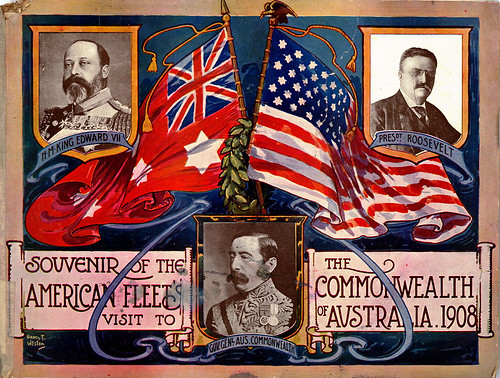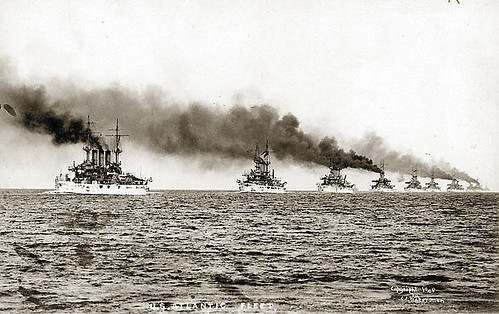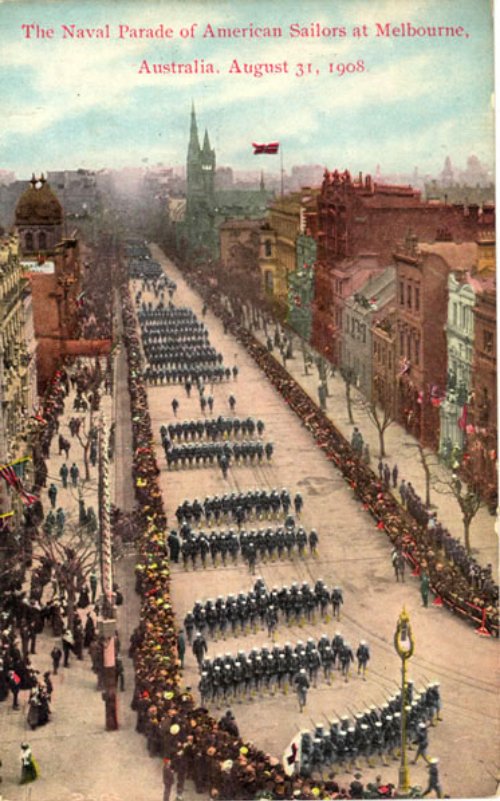By Rafal Heydel-Mankoo, St. George’s Day, 2007
“If I were not French, I would wish to be English”, said a Frenchman seeking to flatter Lord Palmerston. “If I were not English, I would wish to be English”, replied His Lordship. When Queen Victoria’s steely Prime Minister uttered those memorable words, winning a double-word score by simultaneously managing to praise England and stick it to the French, few Englishmen would have disagreed. Some might have wondered why he had bothered to state the obvious. Palmerston’s England was self-assured and self-aware. The English knew they were blessed by God and by golly it was their duty to spread that blessing as far as they could, from the darkest corners of their own island to the farthest reaches of the globe. It mattered not one jot or tittle that no-one had actually requested their intercession. It was true that the transmission of Albion’s seed was to take place under a recently created “Union” flag, but everyone knew that the English called the shots. Johnny foreigner’s inability to distinguish between “England” and “Britain” was proof of this.
How remarkable then that the English nation today suffers Europe’s greatest identity crisis. Whilst Estonians, Croats, Scots and Montenegrins gorge themselves on lavish portions of national bluster, the English scavenge for scraps. Europe’s finest nation is lost and confused. It is surely the supreme irony that England’s current malaise has been caused by its greatest creation: Britain. Does this mean that England’s survival requires the destruction of the United Kingdom?
As the protagonists in the British story, generations of Englishmen, secure in their identity, were happy to offer up their cherished ideals and values and have them woven into a new British national fabric. The creation of British symbols and institutions blurred the distinction between England and Britain ever further. Elevation of Britishness above Englishness posed few problems whilst there were pink bits on the map and even the retreat from Empire failed to dent the Englishman’s devotion to the Union. But in Scotland and Wales the gradual weakening of British power caused many to question the continuing relevance of imperial symbols and institutions and even of the Union itself.
History tells us that where union between states is achieved, its foremost advocates will belong to the dominant state. The strong exert greatest influence, we all know that. We also know that smaller states, fearing assimilation, are more likely to foster and maintain their pre-existing cultures and traditions. Whilst the English, Serbs and Prussians thought of themselves firstly as British, Yugoslav or German, the same could not be said for their junior partners (Scots, Bosnians, Bavarians). We find evidence of this in the New World as well: many American southerners belong to Dixie first and the USA second; in Canada the residents of Ontario, Canada’s most powerful province, are the most likely to identify with nation before province.
As Scots and Welsh and Irish celebrate their rich cultural legacy and bask in their Celtic identity, dipping into the vast stores of tradition that earlier generations have preserved, the English appear bereft of culture and burdened by the guilt of what is perceived as a racist and imperialist past, thereby ensuring that any budding pride is well and truly nipped. Such is the degree to which England and Britain are entwined in the public psyche that the major role played by the Scots in the expansion of Empire, and in its nefarious excesses, has been forgotten, obscured by the myth of Braveheart and the struggle against English oppression. It is the English alone who are to blame for Britain’s past wrongs and whilst other inhabitants of these isles may celebrate their national pride with impunity, similar English expressions are attacked as racist. Quite what the rest of the United Kingdom was doing whilst England was colonizing, lopping hands off and stripping resources boggles the mind. The bizarre double-standard reached its apogee upon the election of Ken Livingstone as Mayor of England’s capital city. Shortly after attaining office Red Ken turned Green, allocating funds for a parade honouring St. Patrick but banning one in honour of St. George. The celebration of Englishness was deemed insensitive and divisive. Ken has a point though, as any film buff will attest, the English tendency to evil is indisputable. Has anyone ever seen a Hollywood film where the villain did not speak RP?
Partly due to such negative stereotyping, supporters of Englishness have for many decades retreated to that which is cozy and unassertive: warm beer, bicycling vicars, picnicking in front of a car’s exhaust and watching belled and tassled fetishists bash each other with sticks. It is English Lite. For many, to whom overt displays of patriotism are vulgar and decidedly un-English, this castrated hey nonny no has been sufficient. An Englishman’s pride was always serene and personal. And so it remained. And all was good. However the English have finally awoken to the fact that patriotic fervour has enabled the other inhabitants of this island to accrue considerable benefits, often at English expense. And this offends that most sacred of English values: fair play.
The English did not object to the creation of a Scottish parliament or a Welsh assembly, neither have they raised a fuss over the issue of Scottish over-representation at Westminster; but they object vehemently to those same Scottish MPs meddling in English domestic affairs, particularly when they secure the passage of English-only legislation which would otherwise have failed. That’s just not cricket. As the wealthy partners in the Union the English did not mind giving the others a leg up, even if it meant that more money was spent per head in Scotland and Wales than in England. But to see these subsidies lead to vast improvements in Scottish hospitals and schools whilst their English counterparts lay mired in squalor is simply not on. The English see their neighbours rewarded for throwing the rattle out of the pram. Such clear injustices rankle, particularly when those whom the English subsidise add insult to injury by supporting which ever country opposes England on the playing field. That really is too much! Like a baited bear in a Southwark pit, England has been roused and is preparing to defend itself.
Drake’s drum may have yet to sound, but a renewed and invigorated England is reacquainting itself with its traditions, its culture and its symbols. Where once the Union Jack greeted English teams, the St. George’s Cross now flutters. Content to sing God Save the Queen whilst the disloyal Welsh and Scots sang their own “national” anthems, the supporters of English sport are now contemplating Jerusalem. Once an activity of the quaint and eccentric, the exchange of St. George’s Day cards grows from year to year. And, significantly, an Englishman is now as likely to identify himself as English as he is likely to say he is British. Most importantly, that Englishman may be of Asian, Afro-Caribbean or European descent: twenty-first century Englishness reflects twenty-first century England.
Such displays may stiffen the sinews, but they are meaningless without a proper appreciation of England’s contributions to civilization. To truly establish an English identity, its people must reclaim and celebrate as their own, those values and concepts which have become an established part of the British character: from tolerance, justice and the rule of law to the Monarchy, Parliament and the English language, each is as English as it is British. Only then can England be said to have found itself.
© Rafal Heydel-Mankoo, 2007.
(Reprinted here with the express permission of the author)
------------------------------------------------------
About the Author:
Rafal Heydel-Mankoo is the Editor and co-author of Burke’s Peerage & Gentry: World Orders of Knighthood and Merit, a 2,000 page reference work which has been hailed as “the definitive study” and “a classic…unlikely to be replaced for at least a century”. Born in the UK and educated in Canada, Rafal now lives in London. Rafal is one of Canada’s principal royal commentators and pundits. He has provided live television commentary for events including the Golden Jubilee of HM The Queen, the funeral of HM Queen Elizabeth the Queen Mother and the marriage of HRH The Prince of Wales.
A former director of the Royal Heraldry Society of Canada, former Director of the International Churchill Society and a past Ottawa branch Chairman of the Monarchist League of Canada, Rafal is a Trustee of the Canadian Royal Heritage Trust, a Commissioner for the International Commission for Orders of Chivalry and a Council Member of the Royal Stuart Society. In 2002 Rafal was decorated by the Canadian Crown in recognition of his work educating Canadians about the monarchy. Rafal is a Knight of Merit of the Sacred Military Constantinian Order of St. George, a Knight Commander of the Order of the Crested Crane (Rwanda) and a Commander of the Order of the Lion (Ethiopia).
Read the full article >>
 Vice-Regal Saint:
Vice-Regal Saint: 


































































.gif)

.gif)














































































































